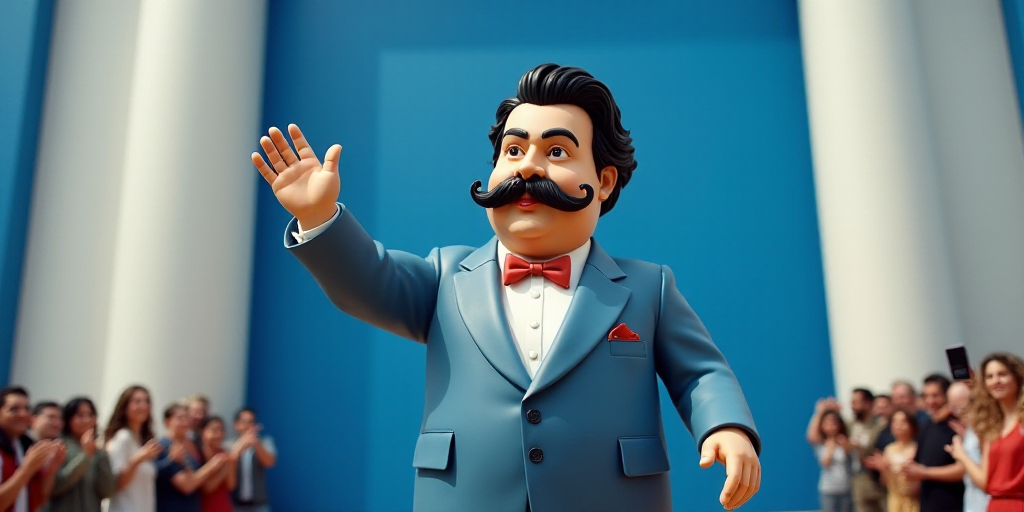Early Life and Political Beginnings
José “Pepe” Mujica, the former president of Uruguay, was born on May 20, 1935, in the Paso de la Arena neighborhood of Montevideo, the capital city. The son of Basque and Italian immigrants – Demetrio Mujica Terra and Lucy Cordano Giorello – Mujica became an ethical and political reference for a frugal, honest, and deeply democratic left.
A Tumultuous Journey Through Politics
Mujica faced numerous challenges, including being shot six times and imprisoned four times as a Tupamaro militant in his youth. He spent over a decade in prison (1972-1985) under inhumane conditions, enduring seven years without reading a single book. Upon regaining freedom with the return of democracy, he chose dialogue and founded the Movimiento de Participación Popular political party. He served as a senator and later as the Minister of Ganadería, Agricultura y Pesca from 2005 to 2008. In 2010, he became the President of Uruguay with the Frente Amplio.
An Atypical Exercise of Power
Mujica’s time in power broke the mold, earning him a place among the most influential leftist figures in the region. After winning the presidency with 54.63% of the vote against the right-wing Luis Alberto LaCalle, he declined to move into the presidential residence. Instead, he continued living in his humble home with his wife, ex-senator Lucía Topolansky.
He donated 90% of his $12,000 salary to social causes like building houses and schools. Mujica lived as he believed, critiquing excessive consumerism and unchecked capitalism without embracing dogmatic Marxism. He famously said, “I am not poor; I am temperate. Poor is the one who needs a lot.”
Key Achievements and Regional Impact During His Presidency
Mujica freed the left from ideological dogmatism. He offered new sources to support the left’s discourse and counter right-wing arguments that portrayed leftist ideologies as incompatible with market economies, free enterprise, and private initiative. In response, Mujica adopted a democratic socialist model.
During his presidency, he legalized same-sex marriage, abortion, and marijuana – changes seen as progressive pragmatism rather than radicalism. He reduced Uruguay’s poverty from 30% to 10% and advanced significantly in diversifying electricity generation sources.
He acknowledged capitalism’s positive aspects, such as technological development and improved living standards for many. However, he emphasized that the system caused inequality and mechanized humanity.
Admirers on Both Sides of the Political Spectrum
Mujica’s direct style, critical thinking, and rejection of privileges made him a global reference. Leaders like Gabriel Boric admired him as an ethical beacon, while others from the right, such as Juan Manuel Santos and Sebastián Piñera, respected him deeply for his democratic temperament and openness to dialogue.
Despite his distance from leaders like Cristina Fernández and Néstor Kirchner, whom he criticized openly, Mujica never became sectarian. He believed power should serve, not be served by.
“León Herbívoro” and Agent of Change
An atheist, Mujica was deeply spiritual in his respect for nature. He called himself a “vegetarian guerrilla” and a “herbivorous lion,” reflecting his convictions in speeches like the one at the UN in 2013, where he criticized global economic models and consumerism.
Mujica’s legacy is uncommon: a politician who remained faithful to his ideas while learning to change, dialogue, and acknowledge mistakes. He was stoic and integral, a rare quality in politics.
Colombian Peace Process
In Colombia, Mujica played a crucial role in the peace process with FARC, bringing legitimacy and experience without resorting to corporate defenses due to his past. He stood firmly on the side of peace without condoning violence, understanding social struggles’ essence while questioning extremism.
Key Questions and Answers
- Who was José “Pepe” Mujica? – A former president of Uruguay, born in 1935, who became a global ethical reference for his frugal, honest, and deeply democratic leftist ideals.
- What were Mujica’s political achievements? – He legalized same-sex marriage, abortion, and marijuana; reduced poverty in Uruguay from 30% to 10%; and advanced electricity generation diversification.
- How did Mujica approach power? – He lived humbly, donating most of his salary to social causes and rejecting the trappings of power.
- What was Mujica’s role in the Colombian peace process? – He provided legitimacy and experience, standing firmly on the side of peace without condoning violence.
- Why was Mujica admired globally? – His direct style, critical thinking, and rejection of privileges made him a respected figure among both leftist and right-wing leaders.






